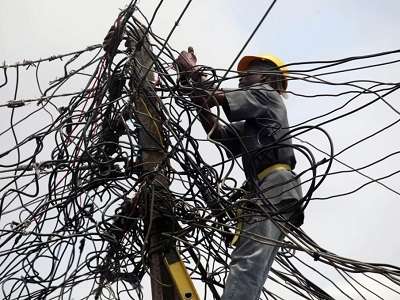Nigeria Electricity Regulatory Commission (NERC) Chairman Prof. James Momoh yesterday vowed to review the prevailing electricity tariff.
Speaking with reporters after the Minister of Power, Works and Housing, Babatunde Fashola inaugurated him in Abuja, he said the commission would look into the computation of the tariff.
He said: “The tariff is not a challenge you cannot solve. It happened, you learnt something about it last week. You don’t have to relearn the same lesson today.
“You should be able to ask question–what are we going to do tomorrow to avoid the problem?. There is what you call data science in the new thinking of the world, where we collect data, you learn from the information and you predict the future. So if we don’t do that, we are wasting our time. Because you know it is going to rain tomorrow so you get your umbrella. You don’t wait until it rains before you go by umbrella.”
Momoh added: “We have no choice; we have to look at what computes a tariff. Tariff is not a guesswork. There is a calculation you do to get there.”
He said he believed in team work for quick wins, adding that some of the quick wins should be what the commission could do in terms of estimated billings and how to ensure that it gets enough data to convince customers to pay for the power they use.
Momoh said: “If we remain the same, and we remain static, and we are not solving real problem, we will just be doing fire brigade promise. The GenCos will always tell you there is a blackout without knowing why.
“You are going to ask question why. I know why, because I know the Mathematics behind it, I know the Physics behind it. I know also the Economics behind it. If we are able to teach people to know why things go wrong, perhaps, we learn from our mistakes,” he said.
Momoh, who said the industry should anticipate problems, insisted that “we look back, we use lessons of yesterday to solve tomorrow’s problem.”
Earlier, Fashola said observers would admit that power supply has increased since 2015, submitting that “without a doubt, we have increased generation to 7000Mw, increasing the transmission to over 7,000Mw, and increasing the distribution from 2,690 to average of 4,900 or 5,000.”
He said the electricity market has a capacity of 2,000Mw that has been stranded, which the ministry is working to distribute before this year end.
According to him, the NESI has a new stock of 459Mw underway from Azura that has notified him on the completion of its plant and its readiness to commence operation.
Momoh said the sector is expecting another 240Mw from Afam and another 215Mw from Kaduna. Besides, he noted that the market is also expecting power from Kashimbilla, “but the distribution end is where our challenge lies.”
Fashola said the mini-grid regulation has started yielding results, and the ministry is already seeing the impacts in the market.
He said this year, markets such as Suru in Lagos, Sabon Gari in Kano, Ariria in Aba, and some other markets are going to be energised.
Fashola noted that since the completion of the privatisation of the sector, the size of the ministry has shrunk from the previous staff strength of the 50,000 to less than 1,000.





















